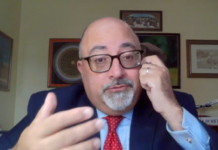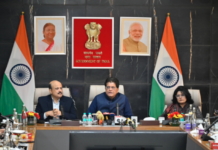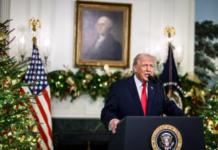New Delhi– BJP MP Nishikant Dubey on Thursday invoked a declassified letter from former U.S. President Ronald Reagan to then Prime Minister Rajiv Gandhi to criticize the Congress party for questioning American involvement in past diplomatic dealings between India and Pakistan.
Taking to social media platform X (formerly Twitter), Dubey shared the letter and wrote, “Why does the Congress get angry? When I read this letter, I felt a deep sense of regret.”
The letter, according to Dubey, reveals that the United States played a pivotal role in shaping the 1988 India-Pakistan agreement on nuclear installations, casting doubt on Congress’ claims of diplomatic independence during its tenure. He stated that the communication showed the U.S. set the agenda for talks between India and Pakistan under American pressure.
“President Ronald Reagan sent this letter to then Prime Minister Rajiv Gandhi. Under American pressure, we initiated talks with Pakistani President General Zia. The American President dictated the terms,” Dubey wrote. “This letter shows that the 1988 nuclear agreement between India and Pakistan was signed under external influence. Even our discussions with Soviet Russia on Afghanistan were steered by the U.S. Was this the spirit of the Shimla Agreement? Was this the legacy of the so-called ‘Iron Lady’? Were we truly sovereign?”
Dubey’s post included an excerpt from the letter that read: “You know my apprehensions regarding nuclear competition in the subcontinent. Your discussions with President Zia next week in Delhi can help set the agenda for peace. I understand that nuclear issues will figure prominently in your talks. We will continue to support regional efforts aimed at achieving nuclear peace in the subcontinent. We are also working bilaterally to enhance non-proliferation prospects, as you asked.”
The agreement referenced is the Agreement on the Prohibition of Attack Against Nuclear Installations and Facilities, signed by India and Pakistan on December 31, 1988, and brought into force in 1991. It remains one of the few enduring bilateral treaties between the two countries.
Dubey’s comments come as the Congress party has stepped up criticism of the Modi government’s handling of foreign policy—particularly in light of Operation Sindoor, India’s military response to the recent Pahalgam terror attack.
Doubling down on his argument, Dubey also questioned whether India’s military intervention in Sri Lanka during the 1980s, under the Indian Peace Keeping Force (IPKF) mission, was likewise influenced by Washington.
“According to this letter, it seems that even in Sri Lanka, we sent the army to kill our Tamil brothers only under American pressure?” he asked.
Dubey’s remarks are part of a broader political debate over India’s strategic autonomy and foreign policy legacy, reignited amid heightened tensions with Pakistan and changing global alliances. (Source: IANS)













